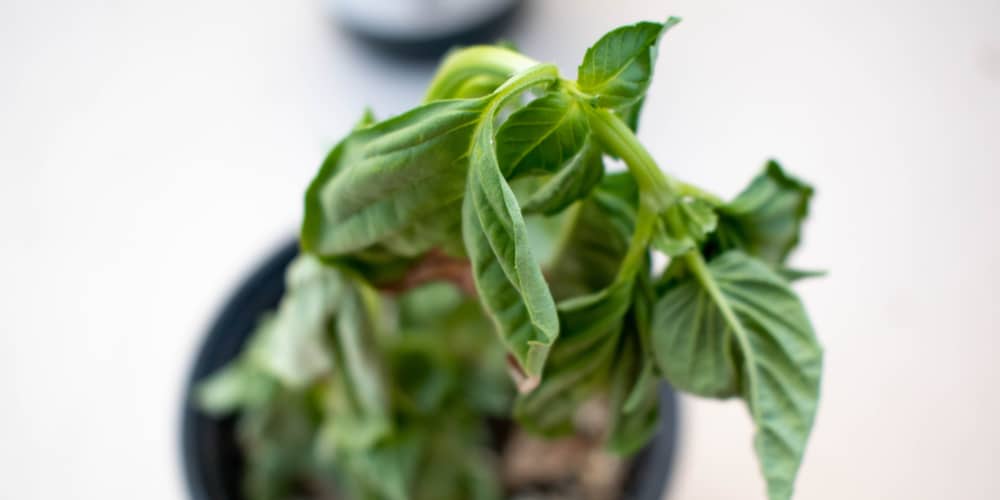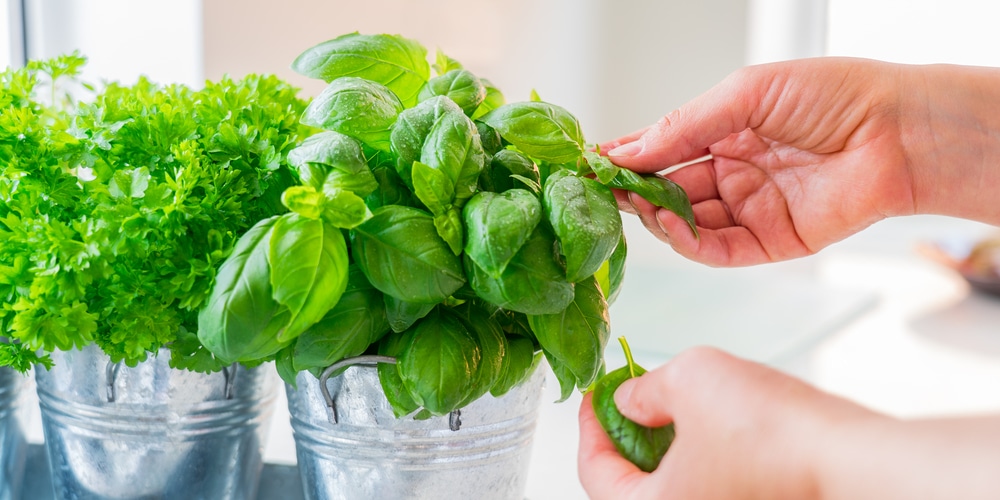Basil leaves are known for their curling edges when something is wrong, but what causes this, and how can you stop it? Read on as we take a closer look at why basil leaves curl and some tips on how to prevent it. Stay tuned for more information!
Why Do Basil Leaves Curl
If you have ever grown basil or even just bought a bunch of it from the store, you may have noticed that the leaves can sometimes curl. While this may not seem like a big deal, it can be frustrating for gardeners trying to grow perfect basil plants. So why do basil leaves curl?
Water Deprivation
One reason for curling leaves is a lack of water. Basil is a sensitive plant that requires consistent moisture to remain healthy. When basil plants have water deprivation, their leaves will begin to curl up to conserve moisture. This process, known as “leaf roll,” can eventually cause the leaves to turn brown and die.
Solution
Keep basil plants evenly watered, particularly during hot, dry weather. This action will help prevent leaf roll.
When watering basil, give the plant a deep soaking to encourage root growth. Allow the soil to dry out somewhat between waterings, as too much moisture will lead to fungal diseases.
Temperature Conditions
If you live in an area with low humidity, this could also be the reason why your Basil leaves are curling.
Another reason for curling leaves is temperature stress. If the temperature is too hot or too cold, it can cause the leaves of the Basil plant to curl up.
Basil is a warm-season annual that thrives in temperatures between 60 and 80 degrees Fahrenheit, most hardy in USDA zones 10-11. When the temperature rises above this range, the leaves of the plant begin to curl as a way to protect themselves from the heat.
While this may seem like a harmless defense mechanism, it can damage the plant in the long run. The leaves are unable to absorb as much sunlight when they are curled, which means that they are not able to produce as much food for the plant.
Solution
Keep an eye on the temperature conditions if you want to have a healthy basil plant. Make sure that the plants are not in direct sunlight for long periods. Another way is to water the plants more frequently so that the leaves do not get too dry.
Pests and Diseases
Aphids, in particular, are fond of feasting on basil leaves. If you see curled leaves on your basil plants, check for signs of pests and diseases. Curled leaves are also more susceptible to damage from pests and diseases.
Solution
Make sure you plant your basil in well-drained soil. Wet or soggy soil can encourage the growth of fungi, which can infect your plant.
Avoid using too much fertilizer. Basil plants are relatively low-maintenance and don’t need a lot of nutrients to thrive. Over-fertilizing can actually do more harm than good.
Check your plants regularly for signs of pests or disease. Catching problems early is the best way to ensure a healthy basil crop.
Sunlight
As any gardening enthusiast knows, basil is a finicky plant. It requires just the right amount of sunlight and moisture to thrive, and even a small deviation from these ideal conditions can cause the leaves to curl. So why does this happen?
When basil leaves are exposed to too much sunlight, they begin to produce more of a compound called linalool. This compound helps the plant to repel predators and ward off disease, but it also makes the leaves curl up tightly.
Solution
Basil is a sun-loving plant, and it needs at least six hours of direct sunlight per day, but no more than eight hours.
If your basil plant is in the ground, be sure to observe your yard throughout the day to see which spots receive the appropriate amount of light for a basil plant.
If your plant is mobile in a pot, you have more flexibility with moving it from direct sunlight to shade.
In Conclusion
Various causes lead to basil leaves curling. However, once you identify the culprit, you can apply the abovementioned methods to help your plant recover and thrive. Moreover, understanding the causes can also help you prevent basil leaves from curling in the first place.
Basil is a great herb to grow in your home and yard as it helps to deter insects such as bees and can be grown on a patio or decking which you want to keep insect free.


